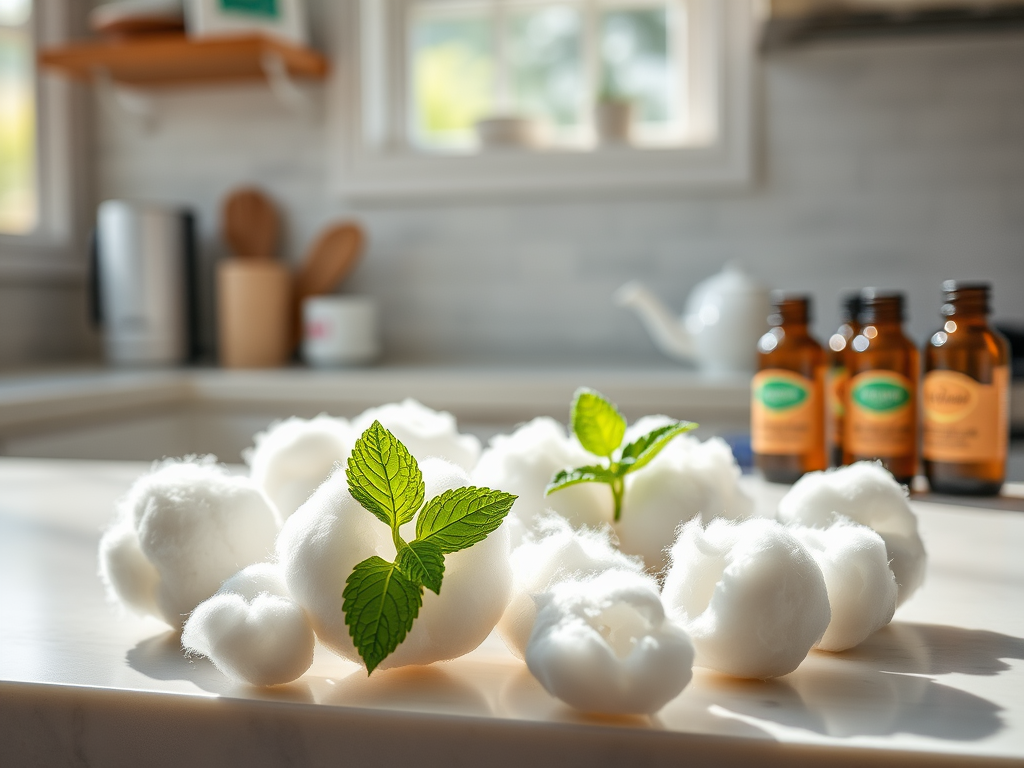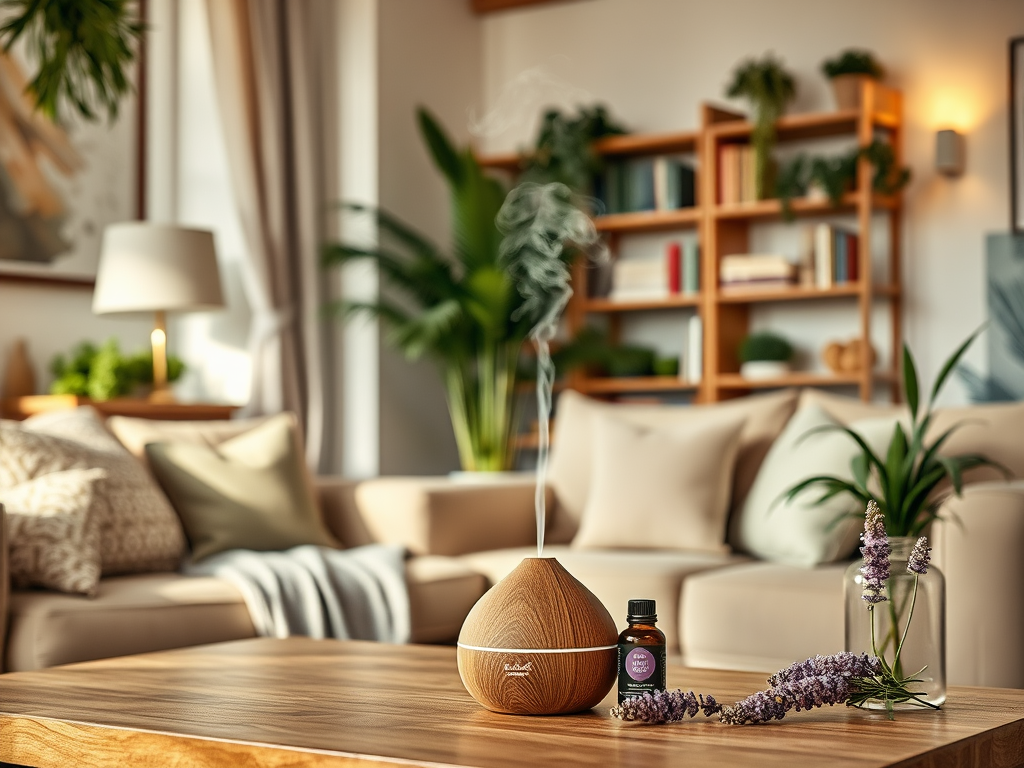In the realm of home pest control, many often overlook the subtle but powerful influence of scent. DIY mouse prevention strategies typically focus on physical barriers and traps, yet the olfactory sensitivities of mice offer a unique avenue for intervention. Scent can either attract or repel these unwanted guests, providing homeowners with a natural and eco-friendly approach to pest control. By understanding the role of different scents, you can create an environment that is inhospitable to mice while maintaining a pleasant living space for yourself. This not only enhances your home’s safety but can also save you money on commercial pest control options. As we explore the various scents that can aid in mouse prevention, you will discover simple, practical methods that anyone can implement.
Understanding Mouse Behavior

Mice are more than just pests; they are fascinating creatures equipped with unique survival instincts. Their keen sense of smell plays a critical role in their everyday lives, guiding them toward food, fellow mice, and safe havens. These small mammals can detect scents over long distances, making scent a pivotal factor in their behavior. Thus, when it comes to mouse prevention, understanding what attracts or repels them is essential. Dispelling common myths about mice can also help you better navigate your prevention strategies. For instance, the idea that all scents are equally appealing to mice is far from accurate.
For mice, scent is a navigation system of sorts—an invisible string that connects them to their food sources and potential dangers. The ability to discern different scents helps them avoid predators and find mates. Because of this significant reliance on smell, employing strong odors that repel mice can be effective in deterring them from entering your home. As we consider various scents, it’s vital to acknowledge that not all humans can detect odors as acutely as mice can. This discrepancy means that some scents may be benign to us but overwhelmingly unpleasant for them. This understanding opens the door to effective prevention strategies focused on scent.
Natural Scents for Mouse Deterrence

When considering natural deterrents, essential oils emerge as powerful allies in the fight against mice. These concentrated plant extracts are known for their strong aromatic properties and can be deployed in various ways for maximum efficacy. Among the options available, specific oils have gained a reputation for their ability to repel rodents. The attractiveness of these oils lies not only in their repelling qualities but also in their pleasant fragrances, which can enhance your home environment.
| Essential Oil | Repellent Properties | Application Method |
|---|---|---|
| Peppermint Oil | Strongly repels mice | Soak cotton balls and place around entry points |
| Eucalyptus Oil | Refreshing scent that wards off rodents | Use in a diffuser or spray solution |
| Lavender Oil | Pleasant aroma less appealing to mice | Use sachets or spray around the house |
Peppermint Oil
Peppermint oil stands out as one of the most widely recognized natural deterrents for mice. Its strong menthol fragrance is not only invigorating to humans but completely overwhelming to mice. Implementing peppermint oil in your home is straightforward and requires minimal effort. Soaking cotton balls in peppermint oil and strategically placing them around potential entry points can create a less inviting atmosphere for rodents. It’s important, however, to refresh these cotton balls regularly to maintain their effectiveness. The allure of peppermint is not limited to its ability to repel; it also provides a fresh scent that can improve indoor air quality.
Other Essential Oils
Beyond peppermint, there exists a variety of essential oils that can serve as effective mouse deterrents. Eucalyptus oil, known for its refreshing scent, shares similar repellent attributes. Lavender oil, while cherished for its calming properties, can also make your home less appealing to mice. Additionally, spearmint oil mirrors the effects of peppermint, offering another layer of protection. Experimenting with different oils may lead you to discover your perfect blend. The beauty of utilizing essential oils for mouse prevention lies in their dual benefits; repelling mice while also enhancing the ambiance of your space.
Food Scents to Avoid
While there are scents that deter mice, there are also those that attract them to our homes. Understanding this dichotomy is crucial for effective mouse prevention. Certain food odors can lure these pests into your living space, making it essential to manage not just offensive scents but appealing ones too. Taking proactive measures in storing food and eliminating enticing odors can significantly reduce the likelihood of a mouse infestation. Below are some common food scents that you should be cautious about:
- Grains and cereals – Always store in airtight containers to minimize fragrance.
- Fruits – Keep ripe fruits sealed or refrigerated to avoid enticing mice.
- Sugary foods – Ensure snacks are sealed properly and stored away from common areas.
Understanding these attractants can enable you to take the necessary steps to keep them at bay. Additionally, make sure you regularly clean up crumbs and spills, as these can easily serve as an invitation for mice. By adopting a proactive approach to food management, you create an environment that is less conducive to rodent habitation.
Creating a Scent Barrier
The creation of a scent barrier serves as an added layer of protection in your mouse prevention strategy. By intentionally placing various scents throughout your home, you establish an atmosphere that is unwelcoming to mice. A well-crafted scent barrier not only utilizes essential oils but also incorporates natural herbs that further enhance its effectiveness. The key is to strategically position these scented deterrents in areas where mouse activity is suspected, such as entryways, attics, or basements.
To maximize the benefits of a scent barrier, consider relying on both team scents and herbal elements. Applying a combination of peppermint, eucalyptus, and lavender oils gives you a powerful arsenal against mice. In tandem, creating DIY sachets filled with potent herbs like mint, bay leaves, or cloves can significantly fortify your defenses. These sachets can be easily hung in closets or placed around bases of entryways to amplify your deterrence efforts. It is also prudent to assess how these scents affect indoor air quality; opting for natural ingredients ensures a fresh atmosphere. Tinkering with different combinations can lead you to find the most effective barriers for your specific environment.
Conclusion
The role of scent in DIY mouse prevention strategies extends far beyond mere folklore; it poses a scientifically-backed solution to a common household dilemma. By leveraging the power of natural scents and strategically employing deterrents, you can develop a robust approach to keeping mice at bay. Additionally, maintaining cleanliness and awareness of food-related scents will further enhance your efforts. This holistic strategy creates a less inviting atmosphere for mice, allowing you to protect your home effectively without resorting to harmful chemicals. With a thoughtful application of these tactics, you can enjoy a mouse-free home while embracing the benefits of natural aromas.
Frequently Asked Questions
- What scents repel mice effectively? Peppermint, eucalyptus, lavender, and spearmint oils are known to effectively repel mice.
- How often should I refresh scents around my home? It’s advisable to refresh the scents every few weeks, or more often if they become less noticeable.
- Can I use scents alone to prevent mice? While scents can deter mice, it’s best to use them in conjunction with other preventive measures, such as sealing entry points and maintaining cleanliness.
- Are there any scents that attract mice? Yes, sweet-smelling foods, grains, and pet food can attract mice, so it’s essential to store these items properly.
- Is it safe to use essential oils around pets and children? Many essential oils can be harmful to pets and children, so it’s crucial to research safety guidelines and consult a healthcare professional or veterinarian if you’re unsure.
